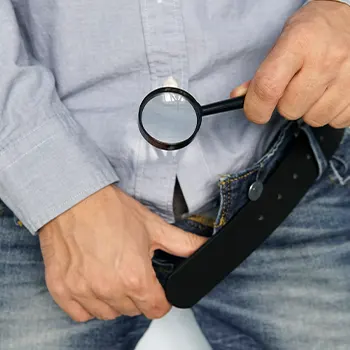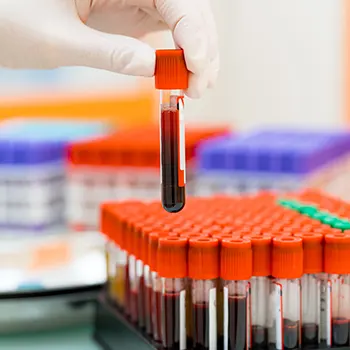Many people suffer from either low or high testosterone. If you’re one of them, it’s crucial that you know what testosterone does and how it affects you.
In my years of coaching athletes and individuals, I've observed firsthand how varying testosterone levels can impact performance and well-being.
This insight, coupled with extensive research, has deepened my understanding of testosterone's importance.
Let's share what I've learned.
Quick Summary
- Testosterone plays a crucial role in the body, influencing physical, mental, and sexual health in both men and women.
- In men, testosterone is vital for the development of genitalia, muscle growth, and sexual function; in women, it contributes to bone strength, behavior, and libido.
- High levels of testosterone in women can indicate conditions like PCOS, which affects up to 15% of reproductive-age women.
- As a health and performance coach, I've observed the significant impact of testosterone levels on overall well-being, emphasizing the importance of maintaining balanced levels.
Testosterone’s Role: Men

Testosterone is often called the male sex hormone, which already tells us a lot about how vital it is for men.
This hormone is key to the formation of the internal and external genitalia during the seventh week of pregnancy.
According to the National Institute of Health, testosterone plays a crucial role in many processes and bodily functions in the male body [1]:
- Growth of the penis and testes
- Growth of facial, pubic, and body hair
- Deepening of the voice
- Balding in later life
- Muscle growth and strength
- Sperm production
- Red blood cell production
- Fat distribution
- Bone growth and strength
- Spatial intelligence
- Raises self-esteem
- Behavior (stimulates aggression, dominance, and competitiveness)
- Sexual arousal and libido
Through my work with diverse clients, I've seen how critical testosterone is, not just for men but also for women, impacting various aspects of health and performance.
Testosterone’s Role: Women

In my observations and discussions with medical professionals, I've learned that while women produce less testosterone than men, its impact on their health is significant.
These are all the ways in which testosterone affects women:
- Increases bone growth and strength
- Boosts spatial intelligence
- Raises self-esteem
- Influences behavior (stimulates aggression, dominance, and competitiveness)
- Increases sexual arousal and libido
In fact, these are all the ways in which testosterone affects both genders, not just women [2].
We already know that women with higher testosterone levels can develop typically male physical traits, such as facial hair [3].
But the same may also be true for behavioral traits like spatial ability, which is linked to testosterone levels (lower testosterone means lower spatial ability) [4].
Symptoms of Low Testosterone

Low testosterone levels can arise from specific medical conditions; however, they are primarily attributed to the natural aging process.
In my coaching practice, I've noticed that many men, often starting in their 30s, begin to experience symptoms that can be linked to a gradual decline in testosterone levels. This observation aligns with data reported by WebMD [5].
If you suffer from low testosterone, you’ll first notice these early symptoms:
- Decreased sex drive
- Erectile dysfunction
- Reduced sperm production
- Enlarged or tender breasts
Over time, low testosterone can lead to other side effects. It may weaken the bones, decrease muscles, or even cause infertility [6].
Also, testosterone deficiency may delay the development of young boys. If a boy suffers from low testosterone levels before or during puberty, he may not experience masculinization (high-pitched voice, facial hair growth inability, etc.) [7].
Symptoms of High Testosterone
Excess testosterone production can result from several conditions, including:
- polycystic ovarian syndrome (PCOS)
- congenital adrenal hyperplasia
- androgen-producing tumors.
Too much testosterone can cause so-called precocious puberty, i.e., early puberty in young boys [8].
High testosterone levels can also cause many other side effects at later stages in life, according to Harvard Health [9].
The most common side effects are:
- Blood clots
- Headaches
- Insomnia
- Liver disease
- Acne
- Increased appetite and weight gain
- High blood pressure, high cholesterol, and an increased risk of heart attack
- Lower sperm count, testicle shrinkage, and even impotence
In addition to these side effects, high levels of testosterone may also lead to behavioral and mood changes (mood swings, irritability, or even delusions) [10].
High testosterone levels may cause adverse side effects in women, too.
For example, women can experience [11]:
- Deepening of the voice
- Frontal balding
- Increased muscle mass
- Acne
- Enlarged clitoris
- Infertility
Moreover, according to the Cleveland Clinic, high levels of testosterone in women can indicate conditions like PCOS, affecting up to 15% of reproductive-age women and leading to symptoms such as acne, irregular menstruation, and excess body hair [12].
Related: Can Testosterone Increase Heart Rate?
What Are Your Testosterone Levels?

You can establish whether you have high, low, or normal testosterone levels by ordering a blood test through your GP.
To accurately assess testosterone levels, several tests are used, including:
- the total testosterone blood test
- the follicle-stimulating hormone (FSH) test
- the luteinizing hormone (LH) test
However, your first test may not accurately assess your testosterone levels because they fluctuate during the day.
The best way to ensure your results are accurate is to undergo testing at least twice.
It’s also advised that blood samples be drawn around 10 a.m. [13]. That’s when testosterone levels tend to be at their highest for most people.
I would also emphasize the importance of your doctor examining you and talking to you before he schedules testing.
“As always, the patient should be examined for gynecomastia, hair loss, size of testicles, and for masses. He should be asked about his sleep patterns, as well. For example, a person who works at night shouldn’t have his testosterone checked in the morning.”
- Clifton Jackness, MD, Physician at Lenox Hill Hospital
Once you’ve been tested, your doctor might determine whether you have high or low testosterone and potentially prescribe you an appropriate treatment.
For example, he might prescribe testosterone replacement therapy (TRT) if you have a severe testosterone deficiency. If you only have a mild deficiency, your doctor may only advise you to take natural testosterone boosters.
References:
- https://www.nih.gov/news-events/nih-research-matters/understanding-how-testosterone-affects-men
- https://www.sciencedaily.com/releases/2013/02/130219121345.htm
- https://www.mayoclinic.org/diseases-conditions/hirsutism/symptoms-causes/syc-20354935
- https://www.bps.org.uk/psychologist/testosterone-and-male-behaviours
- https://www.webmd.com/men/features/low-testosterone-explained-how-do-you-know-when-levels-are-too-low
- https://www.endocrine.org/patient-engagement/endocrine-library/hormones-and-endocrine-function/reproductive-hormones
- https://www.iomcworld.org/medical-journals/testosterone-41916.html
- https://kidshealth.org/en/parents/test-testosterone.html
- https://www.health.harvard.edu/staying-healthy/testosterone--what-it-does-and-doesnt-do
- https://www.dbsalliance.org/education/ask-the-doc/can-going-on-or-off-hormones-cause-mood-swings-or-a-manic-episode/
- https://www.webmd.com/women/normal-testosterone-and-estrogen-levels-in-women
- https://my.clevelandclinic.org/health/articles/24101-testosterone
- https://www.medpagetoday.com/resource-centers/hypogonadism/expert-interview-clifton-jackness-md-important-considerations-testosterone-screening/1085
About The Author
You May Also Like






